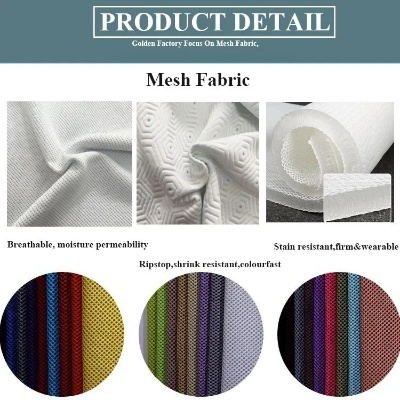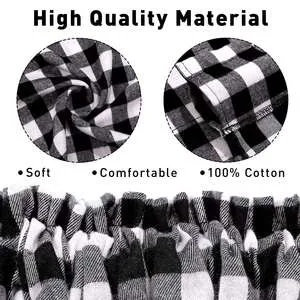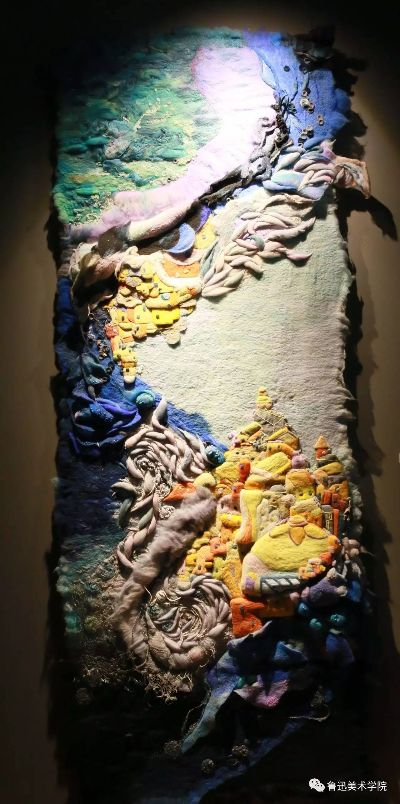The Characteristics of Polyester Textiles
Polyester textiles are characterized by their high strength, durability, and resistance to abrasion. They are commonly used in various industries such as sportswear, outdoor apparel, and upholstery due to their excellent performance in terms of comfort, breathability, and wrinkle resistance. The production process for polyester fabric involves the use of petrochemical raw materials, which results in a fabric that is lightweight, soft, and highly absorbent. Additionally, the colorfastness and washability of polyester textiles make them ideal for use in applications where frequent washing is required. Despite their many advantages, polyester textiles may not be suitable for all environments due to their susceptibility to flammability and potential toxicity issues when exposed to certain chemicals or flames.
Introduction: Polyester, a synthetic fiber made from petrochemicals, is one of the most widely used textile materials due to its durability, strength, and resistance to wear and tear. In this article, we will explore the various characteristics of polyester textiles, including their physical properties, chemical stability, and applications in various industries. Additionally, we will present an illustrative table summarizing some key features of polyester textiles.
Physical Properties:
- Denseness: Polyester textiles are known for their high density, which makes them strong and durable. This characteristic is particularly important when considering outdoor clothing or sportswear, where the fabric must withstand heavy use and exposure to harsh conditions.
- Tenacity: Polyester has excellent tenacity, meaning it can resist creasing and stretching even after multiple washings. This makes it ideal for garments that require a professional fit or for items like shirts, jackets, and pants.
- Heat Resistance: Polyester is heat-resistant up to around 250°C, making it suitable for use in high-temperature environments such as automotive interiors, industrial settings, and outdoor activities.
- Moisture Absorption: Despite being hydrophobic, polyester can absorb small amounts of water, which can cause mild discoloration or mildew buildup over time. However, this is typically not a significant issue unless the fabric is exposed to excessive moisture.
Chemical Stability: Polyester is highly resistant to chemicals, including acids, alkalis, salts, and many other solvents. This makes it ideal for use in applications where the fabric must be resistant to corrosion or chemical attack, such as in marine environments or industrial processing.
Applications:

- Fashion: Polyester is commonly used in apparel, including shirts, dresses, skirts, and blouses. It is also popular in sportswear and casual wear due to its durability and comfort.
- Sports: Polyester is often used in athletic gear, such as shorts, jerseys, and swimwear, due to its ability to withstand sweat and movement without losing shape or color.
- Automotive: Polyester is used in the interior of vehicles to provide a comfortable and breathable environment for passengers. It is also used in protective clothing for drivers and mechanics.
- Textiles: Polyester is a primary ingredient in the production of non-woven fabrics, such as carpets, upholstery, and curtains. Its high density and strength make it ideal for these applications.
Case Study: One example of the versatility of polyester textiles is the development of "smart" clothing that incorporates sensors into the fabric to monitor vital signs such as heart rate and temperature. These garments are designed to provide real-time feedback to users, enhancing their comfort and functionality in various settings. The use of polyester in these smart textiles ensures that they remain durable and resistant to wear and tear, making them a practical solution for active individuals who need constant monitoring of their health.
Conclusion: Polyester textiles have become an integral part of our lives due to their numerous advantages, including durability, strength, and resistance to wear and tear. From everyday clothing to high-tech applications, polyester's unique characteristics make it a versatile and reliable material that continues to shape the world we live in. As technology advances and new uses for polyester continue to emerge, it remains a critical component of the textile industry, providing solutions for a wide range of applications.
涤纶纺织品概述
涤纶,作为一种常见的合成纤维,具有优异的物理和化学特性,广泛应用于各类纺织品中,涤纶纺织品以其高强度、耐磨、抗皱、易洗易干等优点,深受消费者喜爱,本文将详细介绍涤纶纺织品的特性及其应用案例。
涤纶纺织品特性
强度与耐磨性
涤纶纤维具有较高的强度和耐磨性,能够承受较大的拉力、弯曲和冲击力,这使得涤纶纺织品在各种运动和日常使用场景中表现出色,运动服装、户外装备、工业防护服等。
柔软与舒适性
涤纶纤维柔软且舒适,适合各种肤质和穿着需求,其良好的吸湿性可以保持皮肤干爽,同时其光滑的表面也使得穿着更加贴身舒适,涤纶纺织品在服装、家居装饰等领域都有广泛应用。

环保与可持续性
涤纶纺织品在生产过程中采用环保技术,减少了对环境的影响,涤纶纤维具有良好的抗皱性和易洗易干的特点,使得其在环保的同时也满足了消费者的使用需求。
以下是涤纶纺织品特性的英文表格说明:
| 特性描述 | 英文说明 |
|---|---|
| 强度与耐磨性 | Strength and wear resistance |
| 材料成分 | Polyester fiber, made from synthetic polymers |
| 应用领域 | Sportswear, outdoor equipment, industrial protective clothing, home textiles, etc. |
案例说明
涤纶运动服装案例
近年来,涤纶运动服装因其高强度、耐磨、舒适性等特点,深受消费者喜爱,某知名运动品牌推出的涤纶运动服,采用先进的涤纶纤维生产技术,保证了服装的强度和耐磨性,其柔软舒适的面料和贴身的设计,使得穿着更加贴身舒适,该品牌的运动服装在市场上销量一直很高。
涤纶家居装饰案例
涤纶家居装饰材料因其环保、易洗易干等特点,也受到了消费者的青睐,某品牌的涤纶窗帘采用环保材料制作,具有良好的吸湿性和抗皱性,其光滑的表面和舒适的触感,使得窗帘成为家居装饰的好选择,该品牌的涤纶地毯也以其舒适性和耐用性受到消费者的好评。
涤纶纺织品以其高强度、耐磨、柔软舒适等优点,广泛应用于各类纺织品中,在生产过程中,采用环保技术,减少了对环境的影响,其良好的吸湿性和抗皱性也满足了消费者的使用需求,在案例中可以看出,涤纶纺织品在运动服装、家居装饰等领域都有广泛应用,随着科技的不断进步和消费者对纺织品品质要求的不断提高,涤纶纺织品的应用前景将会更加广阔。
Articles related to the knowledge points of this article:
The Journey of Ethical Textiles 法诗诺纺织品之旅



